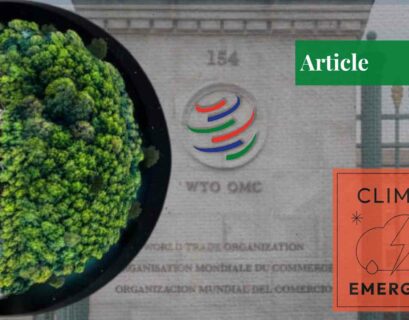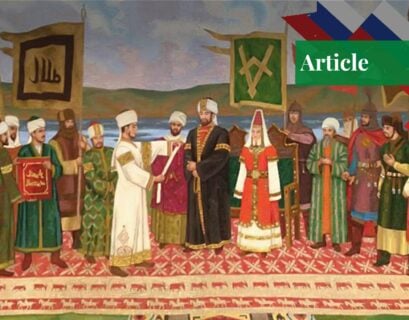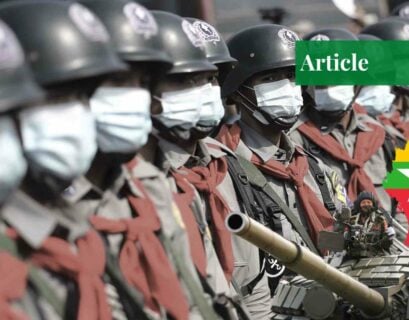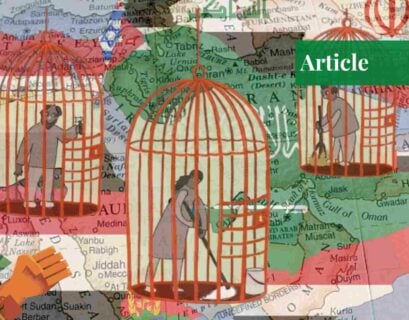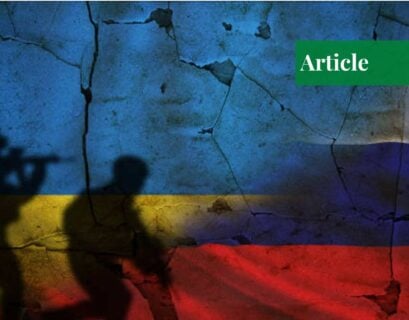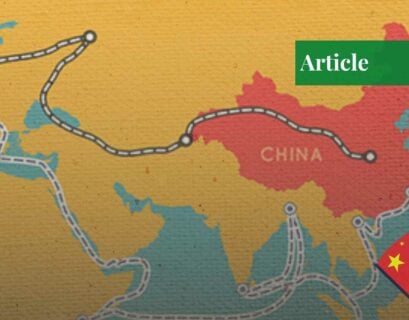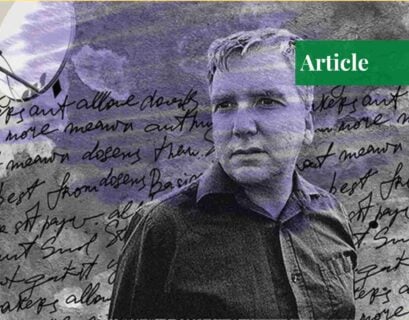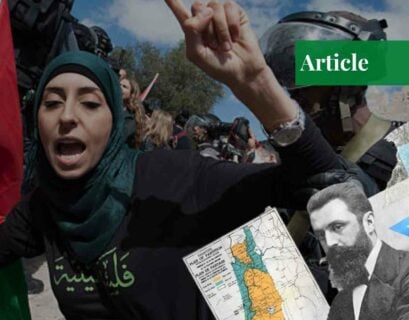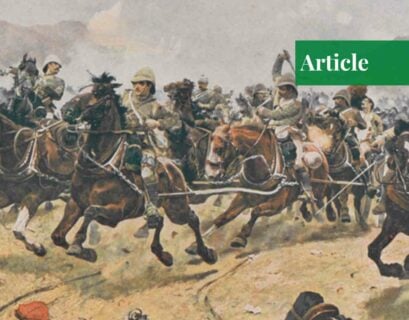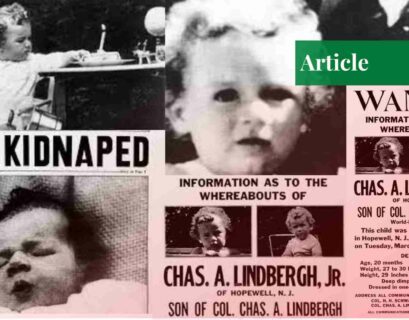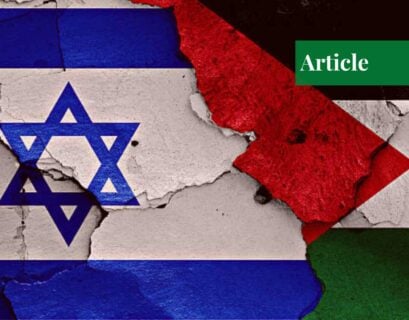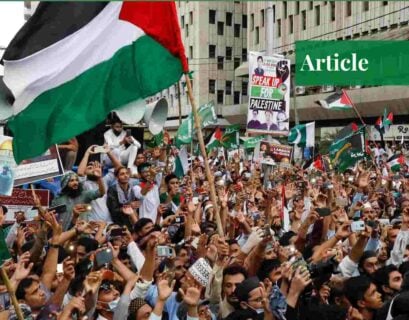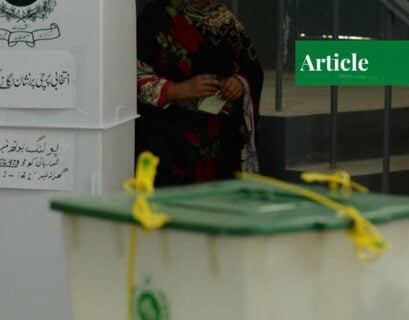How Tourists are Ruining Travel Destinations
Tourism has long been a part of the world. It is also beneficial for the visited areas if done responsibly. However, the growing phenomenon of over-tourism has negatively affected the environment and landscape of the tourist spots and the lives of the local people. The tourism industry exploits the local areas, leading some to believe tourism is a neocolonial venture. Therefore, responsible and sustainable tourism is needed to rein in the negative aspects of over-tourism.
Analyzing the Iranian and Israeli Counter-Strikes
April has been eventful for security analysts and geopolitical experts.
The long and bitter rivalry between Iran and Israel was fully exhibited by the repeated strikes and counter-strikes between the two.
There is something oddly interesting about these retaliatory attacks, and Abdullah Nisar shares his take on the attacks between 1st and 19th April and how things will play out.
Will Iran make its move against Israel for the Isfahan attacks?
Global Governance Over Climate Change: Case Study of the World Trade Organization (WTO)
Several factors hamper global governance over climate change, such as the overwhelming North-South divide, institutional stagnancy, and rampant capitalism.
Shiza Ahmed built upon the case study of the World Trade Organization (WTO) and detailed how it could play an impactful role in alleviating the effects of the climate crisis.
What kind of reforms would the WTO have to undergo to help curb the effects of climate change?
Maskirovka, A Russian Military Strategy—Is the Element of Surprise Still Relevant?
Maskirovka has always been an elusive term, often times used crudely at any Russian perceived act, but there is more depth, complexity, and meaning to maskirovka than some immoral Russian trickery.
It is a military art, deemed reliable since its first use against the Mongols. It is a way of war, and along with it comes the element of surprise, an under-rated part of maskirovka.
Alishbah Syed explores the concept of maskirovka and the continuing relevance of surprise in it.
Tales from the Steppes: The Presence of Muslims & Islam in Russia
The history of the Muslim communities in Russia dates farther back than the collapse of the Soviet Union.
This article delves into the rich heritage of Islamic traditions in Russia, from the early interactions with Tatar Muslims to the modern-day expressions of faith among diverse Muslim communities.
Fatimah Naeem examines the challenges and opportunities faced by Muslims in the Russian state, including issues of religious freedom, cultural integration, and political representation.
She also highlights the contributions of Islam to Russian culture and society, showcasing the resilience and diversity of Muslim identities within the Russian Federation.
The Iran-Israel War: A False Front of Power
The Iran-Israel war has been making headlines in April, and rightly so—the fear of a WWIII happening has the world glued to screens now, more than ever before.
Lt Gen (R) Tariq Khan has a different view of these attacks between Iran and Israel. He deems them only to be an act; a play that appears to show both countries as protagonists.
Myanmar’s Turbulent Journey Through a History of Coups and Resilience
In the archives of Myanmar’s rich and intricate history, the chapters detailing military coup d’état echo with a jarring blend of resistance, power, and resilience.
Today, we find a nation that has weathered the intense storms of terror, staging revolts while standing resilient amongst the changing winds.
The military coup in the state of Myanmar took place in 2021, bringing forth the horrors of its past. Ayra Azhar attempts to navigate Myanmar’s intricate past, unveiling the shadows of its military rule while igniting the flickering flames of democracy.
Kafala System: Violating the Rights of Migrant Labor in the Middle East
Migrant labor plays a crucial role in the global workforce, contributing significantly to host countries’ economies.
However, they encounter various obstacles such as low pay, discrimination, and infringements of their labor and human rights, notably through the kafala system in the Middle East.
Khizra Rashad takes the example of Qatar’s FIFA World Cup controversy to illustrate the widespread mistreatment and exploitation experienced by migrant workers in many Middle Eastern countries.
Russia’s War in Ukraine: Shrouded in Western Hypocrisy
In his analysis, Lt Gen (R) Tariq Khan discusses the glaring hypocrisy of the West amid Russia’s war with Ukraine. He highlights the stark contrast in Western response, noting that despite its apathy towards conflicts in Iraq, Palestine, and Bosnia, the West has now decided to raise its voice for Ukraine simply because it’s considered “civilized,” unlike the others. The author critiques Western involvement and its portrayal of Ukraine as a victim, while predicting a grim future for the country. He emphasizes the need for a fairer global order based on equality and justice.
Is China’s Belt and Road Initiative (BRI) Another Marshall Plan?
Though they’re separated by more than half a century, the American Marshall Plan and China’s Belt and Road Initiative (BRI) were both responses to global crises. Fahad Nasir provides a comparative analysis of the two financial initiatives, drawing upon the differences and similarities between the two in a comprehensive manner.
Capitalist Realism: A Theoretical Framework for Our Times
Sameer Sohail explores Mark Fisher’s theoretical framework of capitalist realism. While providing an in-depth explanation of the theory, he addresses capitalism’s pervasive influence in our daily lives. From our culture to wars, everything has been commodified in the capitalist world, shaping our perceptions and interactions with even the smallest of things.
Memoricide: Zionism’s Deletion of Palestinian Memory
In its pursuit of rewriting history and justifying its occupation of Palestinian land, Zionist Israel has actively erased the memory of Palestinians. Nothing illustrates this better than the term “memoricide,” first coined in 1991. To push the narrative of a purely Jewish nation inexorably linked to God, Israel has employed tactics ranging from massacres, depopulation, and destruction to toponymic changes. The memoricide that began before 1948 continues to this day, effectively erasing the presence and history of Palestinians in their own land.
A History of the Second Anglo-Afghan War (1878-1880)
The Second Anglo-Afghan War, spanning from 1878 to 1880, saw the British Empire vying for control over Afghanistan amid the Great Game rivalry with Russia.
The war and the subsequent Treaty of Gandamak highlighted the challenges of imposing imperial control in Afghanistan’s rugged terrain and fierce resistance, ultimately leading to strained Anglo-Afghan relations.
Kidnapping of the Century: The Case of Charles Lindbergh Jr.
In 1932, America witnessed the kidnapping of Charles Lindbergh Jr., the infant son of pioneer aviator Charles Lindbergh and Anne Morrow. With only a ransom note and a broken ladder left behind, the kidnapper disappeared into the night. Labeled “The Kidnapping of the Century,” the crime garnered both international and domestic attention, propelling the US Congress to pass the Federal Kidnapping Act.
Israel’s Heinous Targeted Killing Programme
The ongoing Israeli war in Gaza has brought to the fore the violations of international law committed by Israel. Sarmad Ishfaq discusses one such violation—Israel’s targeted killing program—and the moral and legal debates surrounding it. Highlighting the historical context and prominent operations, he outlines Israel’s use of targeted killings to eliminate perceived threats, including Palestinian leaders and Iranian nuclear scientists.
Pakistan’s Diplomatic Tapestry: Unraveling the Threads of Foreign Policy in Support of Palestine
Mishayam Jan Ayub explores Pakistan’s enduring support for Palestine, tracing its diplomatic positions and public sentiments. She highlights Pakistan’s unwavering backing for Palestine in the country’s foreign policy, one rooted in historical and cultural ties as well as geopolitical considerations.
Shaping History: The First General Elections in Pakistan
In 1970, Yahya Khan, who imposed Pakistan’s second martial law, issued a Legal Framework Order for the first general elections. The landmark elections of 1970 ushered in a new era, setting the stage for significant changes in Pakistan’s political and territorial landscape. They not only left an indelible mark on Pakistan’s electoral history but also paved the way for future developments and decisions in the country.


